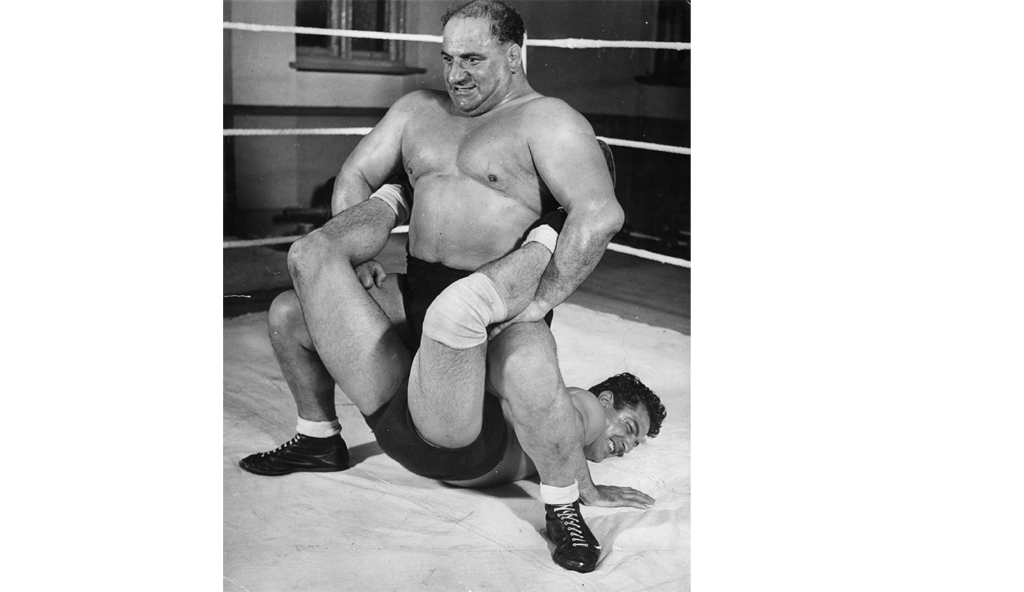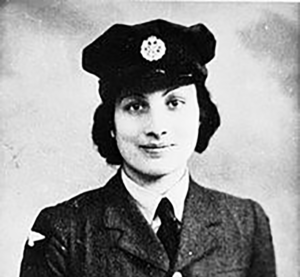P. Pilgrim
One of mankind’s oldest and most basic forms of recreational combat is wrestling. It traces its origins back to the dawn of civilization as carvings and drawings have been found in caves in southern Europe. These drawings illustrated wrestlers in hold and leverage positions. A cast of wrestlers in bold relief on stone slabs believed to be at least 7,000 years old from the Sumerians, one of the earliest known civilizations in the historical region of southern Mesopotamia, predates all other artifacts of ancient sport. Another artifact, dated 2600 B.C, is a small bronze statuette of wrestlers unearthed in the ruins of Khafaji, 200 miles from Baghdad. In Egypt paintings of wrestlers have been found in lavish tombs of kings and other high officials, depicting that most contemporary wrestling holds were performed in ancient Egypt. Wrestling was the most popular event in the ancient Greek Games, with matches being described by the Greek poets Homer and Pindar. The most famous of the Greek wrestlers was the philosopher, Plato, who won many prizes for wrestling as a young man. His real name was Aristocles, but because of his success, he was given the name Plato, meaning “broad shoulders.” The greatest popularity of the Olympic Games was during the period of the “five good emperors” in Rome, around 125 A.D. With the expansion of the Roman Empire, the contests spread across Europe.
Over 100 years ago Evan Lewis was an American professional wrestler who was the first recognized American Heavyweight Champion and is credited with perfecting the “stranglehold” or “neck yoke” more commonly known today as the sleeperhold, winning many tournaments and championships throughout America. In Chicago on June 20, 1898, Lewis faced Yusuf Ismail, a wrestler from Turkey known as the Terrible Turk with a claimed record of 115 wins and no losses across Europe, before travelling to the USA. The match took place in front of a reported audience of 10,000, for a winnings of $3,500 and the “championship of the world”. Ismail had reportedly asked for the winning to be in gold coins, so that if he won he could carry them in his money belt around his waist. Ismail won the fight, in the second and third rounds in six and seven minutes respectively. Afterwards Lewis was quoted as saying, “I was licked. The Turk is the better man.”
Shortly after his victory over Lewis, Ismail took the first ship back to Europe, where he reportedly planned to open a coffee or bazaar in his native village near Shumen. However, the ship SS La Bourgogne sank, and he was one of the 600 passengers who drowned. It was reported that Ismail fell overboard and was dragged underwater by the weight of his money belt full of all his gold coins. His love of money cost him his life. The gospel of Mark chapter 8 verse 36, Jesus Christ asks the question, ‘For what shall it profit a man, if he shall gain the whole world, and lose his own soul?’ The wrestler was at the top of his profession, had gained the respect of his competitors and an incredible amount of wealth. Nevertheless, his love of this money cost him his life and soul, he thought that it was more important to maintain his money than to save his soul. Sadly, today there are many people like Yusuf Ismail and money is their god, the most important thing in their lives. However, when they die their money stays behind, they can’t take it with them. They meet the judge of the world and are found lacking. Money cannot save the soul only trusting in Jesus Christ and his death on the cross. ( pilgrimway101@yahoo.com)




